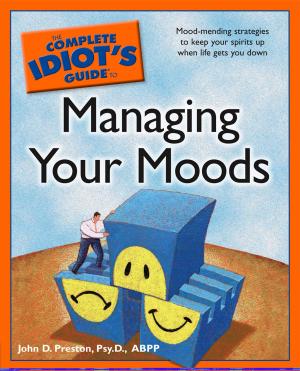Cheat the Clock
How New Science Can Help You Look and Feel Younger
Nonfiction, Health & Well Being, Health, Aging, Healthy Living, Self Help| Author: | Margaret Webb Pressler | ISBN: | 9781615642885 |
| Publisher: | DK Publishing | Publication: | December 4, 2012 |
| Imprint: | Alpha | Language: | English |
| Author: | Margaret Webb Pressler |
| ISBN: | 9781615642885 |
| Publisher: | DK Publishing |
| Publication: | December 4, 2012 |
| Imprint: | Alpha |
| Language: | English |
Washington Post reporter Margaret Webb Pressler's husband Jim is one of those people who doesn't look his age. After years of fielding questions about how he does it, Pressler decided to ask the experts. Her conversations with some of the world's leading experts on aging and genetics, which she wrote about for the newspaper, revealed a new world of research and advice about aging and what you can do to age less, feel better, and look better. Virtually everything she uncovered dovetailed with habits that Jim had already established for himself. But beyond that, she found a tremendous amount of new research about how and why we age, the anti-aging properties of foods and supplements, and the youth-retaining effects of certain behaviors.
Cheat the Clock uses Jim Pressler as a jumping-off point to examine the foremost advice and research about aging well, with actionable advice for real people that they can easily incorporate into their lives on a daily basis. Jim's experience is worth sharing: Margaret's research showed that he is proof there are many small, easy steps that people can take that make a difference in how good they feel and look over many years, and that the proverbial "good genes" don't play as large of a role as we once thought. These are not the ideals of a fitness buff or a nutrition fanatic; these minor tweaks in diet, exercise, lifestyle, and personal care are painless to adopt and achievable for anyone, but can have a big payoff over time.
In Margaret's engaging style, Cheat the Clock shows the long-term rewards of adopting a new regimen focused on these crucial aspects:
- Maintaining a healthy weight
- Engaging in the right kind and right amount of exercise
- Eating an anti-aging diet
- Getting antioxidants from food
- Discovering the wonders of the right dosage of Vitamin E
- Avoiding behaviors that age people the most
- Having plenty of sex
- Taking care of skin and teeth
- Adjusting attitude and lifestyle
Washington Post reporter Margaret Webb Pressler's husband Jim is one of those people who doesn't look his age. After years of fielding questions about how he does it, Pressler decided to ask the experts. Her conversations with some of the world's leading experts on aging and genetics, which she wrote about for the newspaper, revealed a new world of research and advice about aging and what you can do to age less, feel better, and look better. Virtually everything she uncovered dovetailed with habits that Jim had already established for himself. But beyond that, she found a tremendous amount of new research about how and why we age, the anti-aging properties of foods and supplements, and the youth-retaining effects of certain behaviors.
Cheat the Clock uses Jim Pressler as a jumping-off point to examine the foremost advice and research about aging well, with actionable advice for real people that they can easily incorporate into their lives on a daily basis. Jim's experience is worth sharing: Margaret's research showed that he is proof there are many small, easy steps that people can take that make a difference in how good they feel and look over many years, and that the proverbial "good genes" don't play as large of a role as we once thought. These are not the ideals of a fitness buff or a nutrition fanatic; these minor tweaks in diet, exercise, lifestyle, and personal care are painless to adopt and achievable for anyone, but can have a big payoff over time.
In Margaret's engaging style, Cheat the Clock shows the long-term rewards of adopting a new regimen focused on these crucial aspects:
- Maintaining a healthy weight
- Engaging in the right kind and right amount of exercise
- Eating an anti-aging diet
- Getting antioxidants from food
- Discovering the wonders of the right dosage of Vitamin E
- Avoiding behaviors that age people the most
- Having plenty of sex
- Taking care of skin and teeth
- Adjusting attitude and lifestyle















